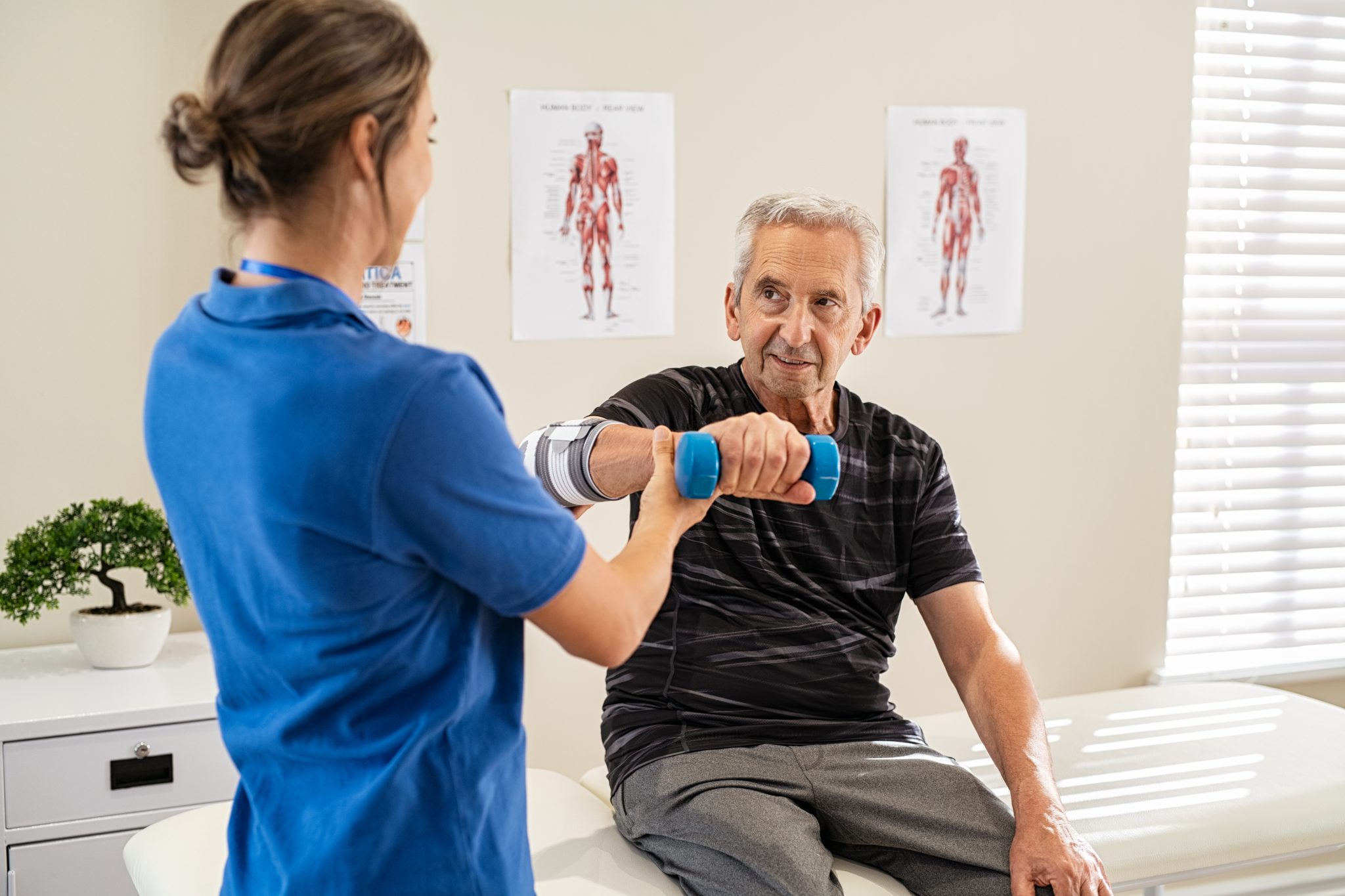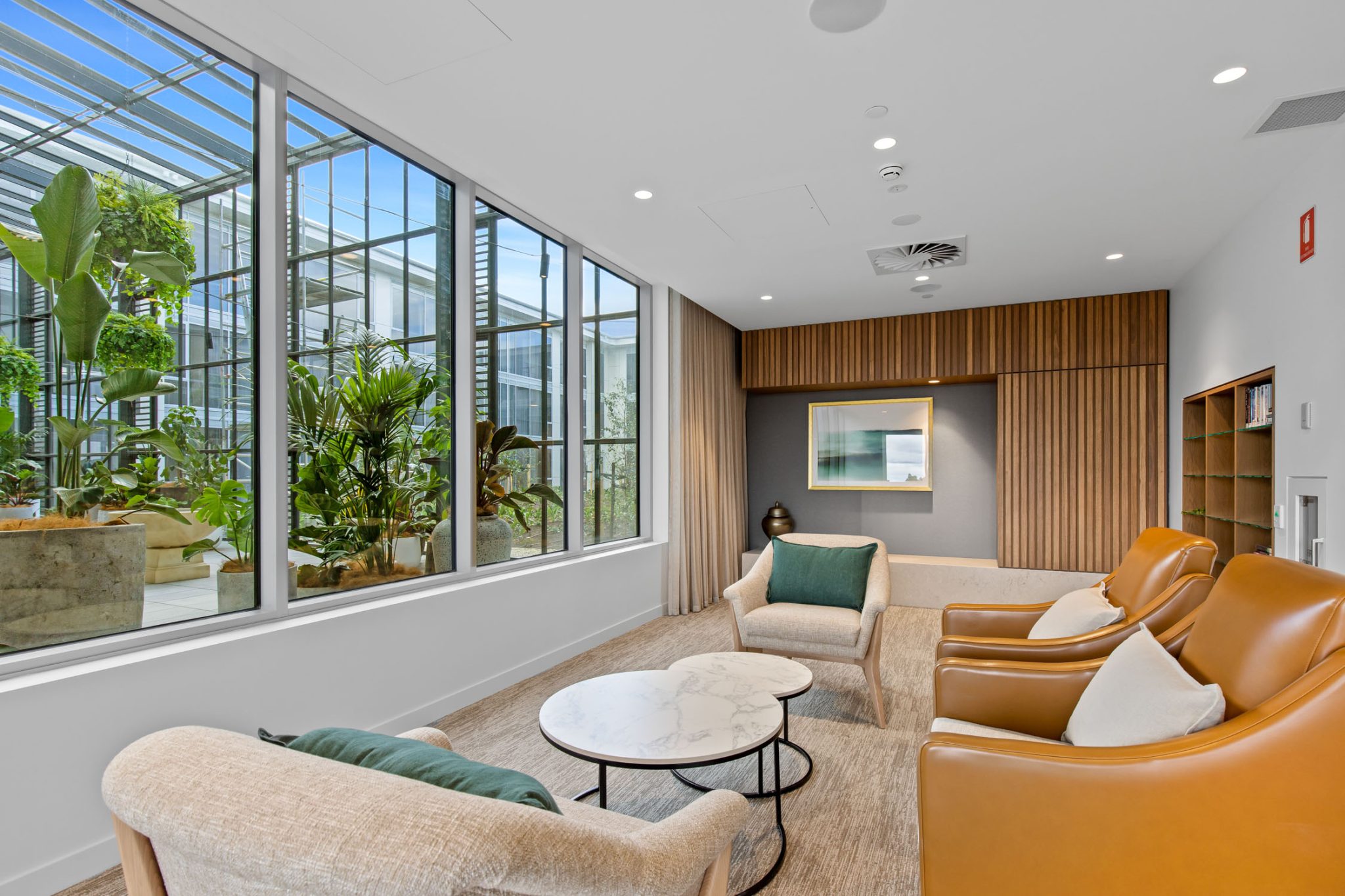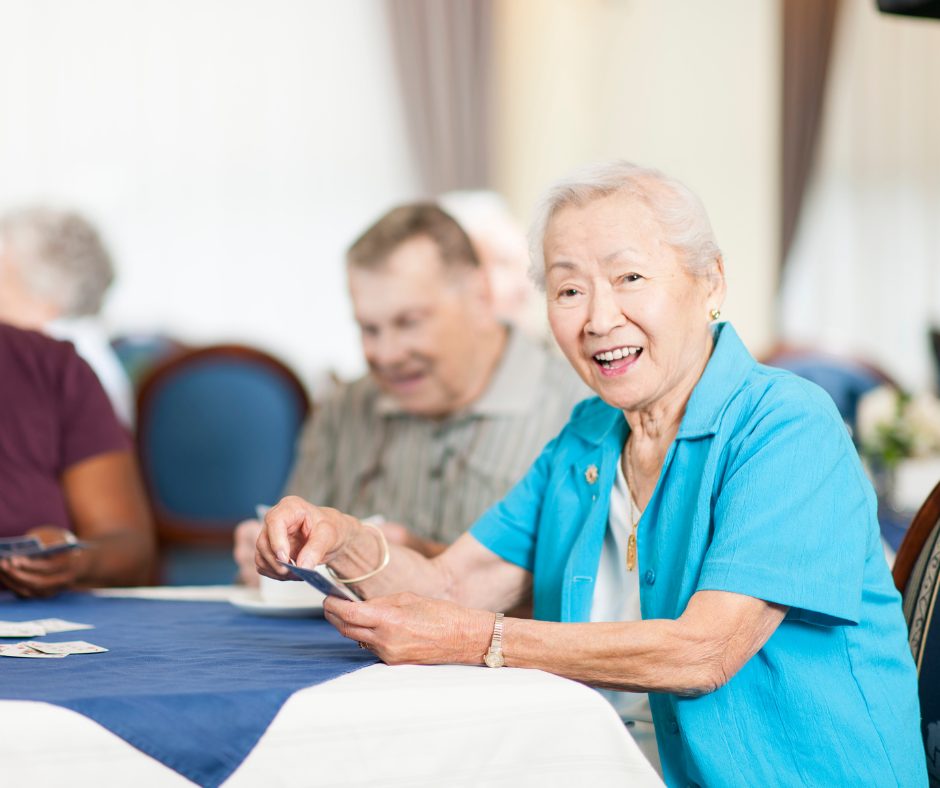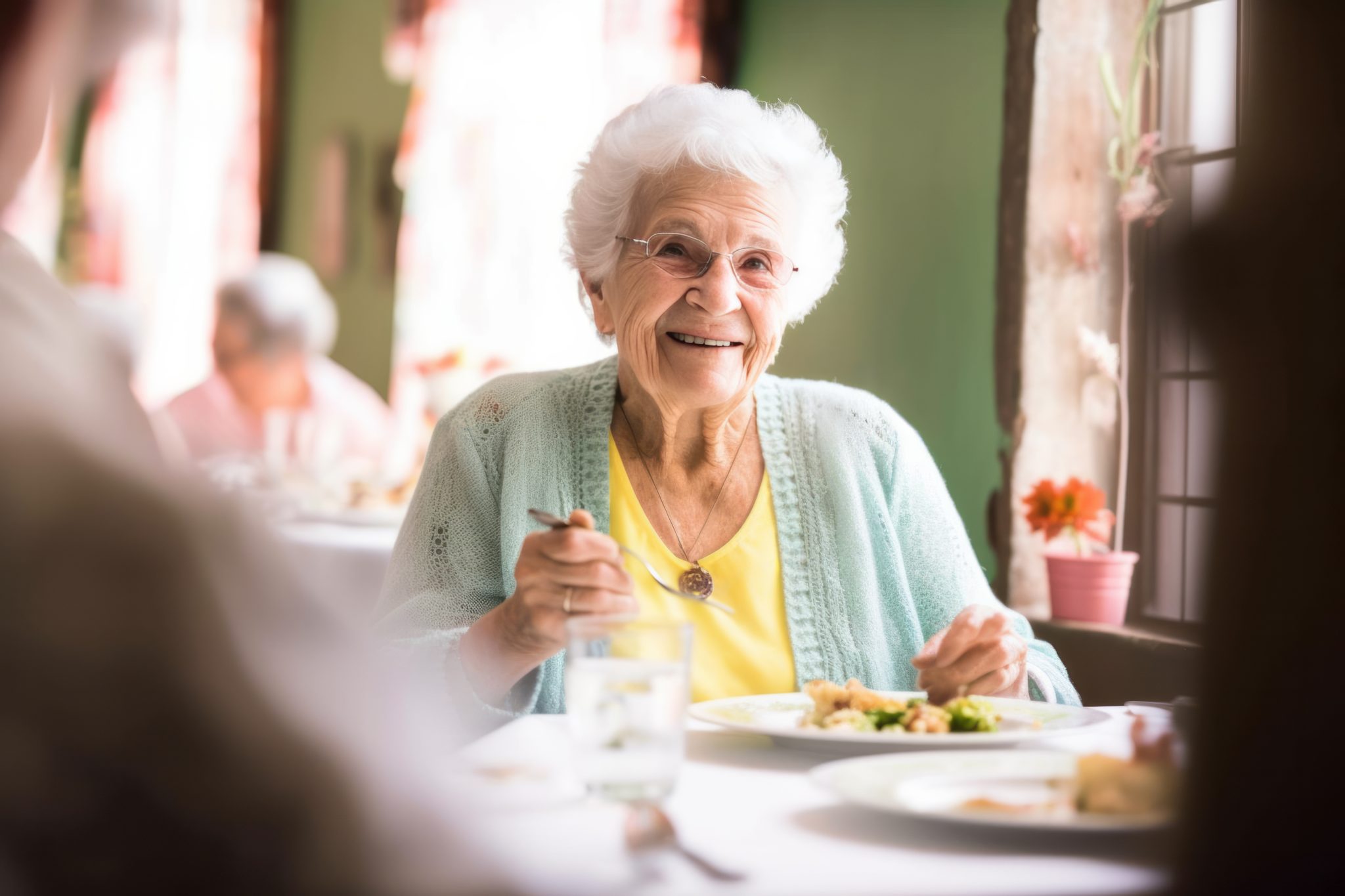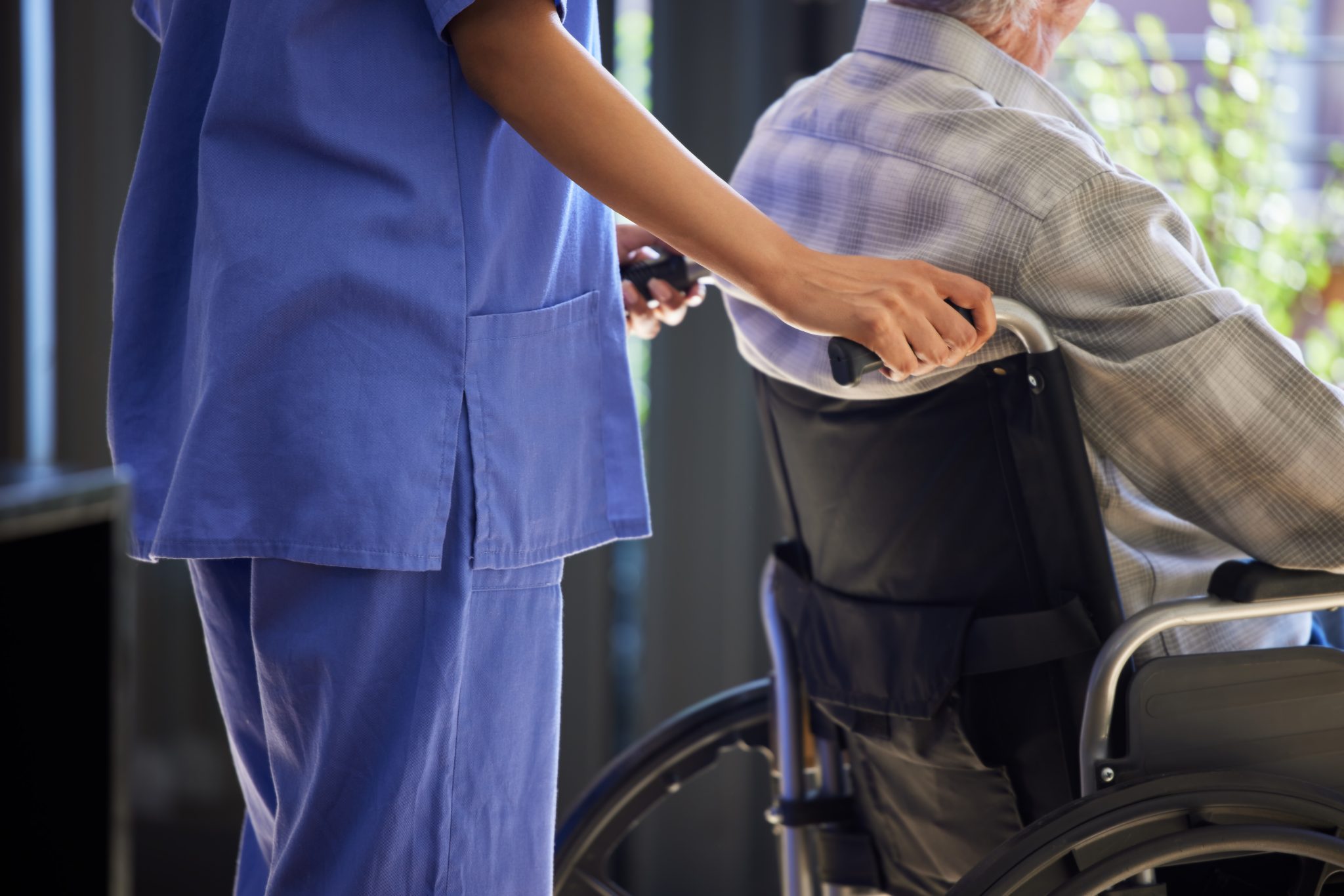Falls can be a significant concern, especially for seniors, because a single lapse of concentration or slip could have serious consequences for our health and wellbeing. In this article, we’ll explore the reasons behind falls, the factors that increase the likelihood of falls, the dangers of falling, practical steps you can take for preventing falls for the elderly at home, and how we support our residents to prevent falls in our Aged Care Residences.
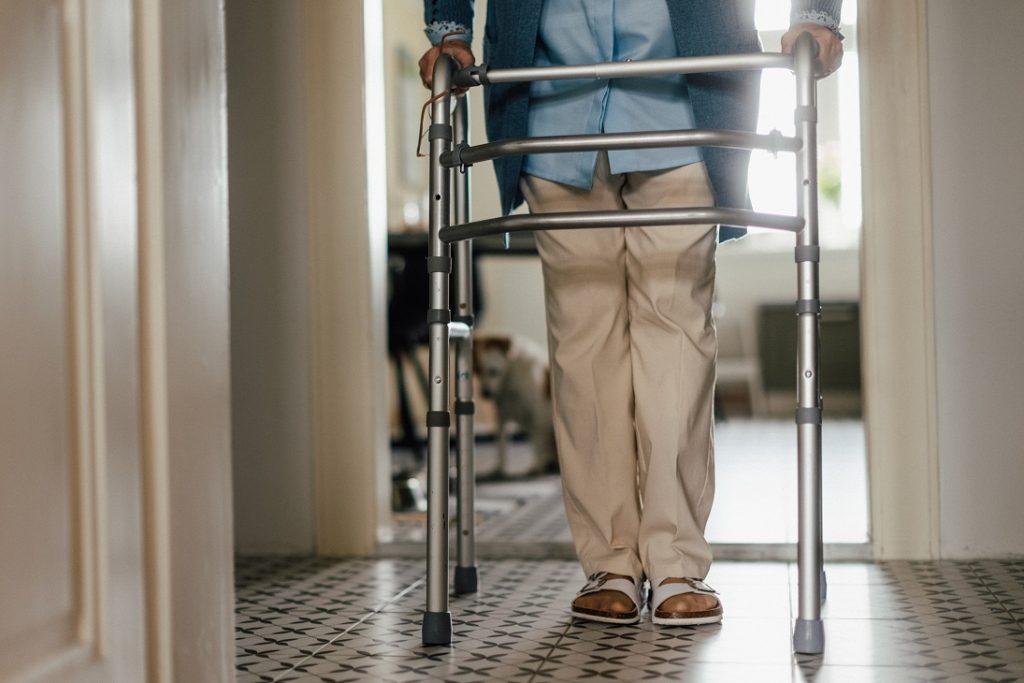
Why do falls happen?
Falls can happen for a range of reasons, including:
- Muscle weakness and balance issues: As we age, our muscles tend to weaken, and our balance can become compromised, leading to instability and an increased risk of falling.
- Gait and mobility changes: Age-related changes in our gait and mobility can affect the way we walk, making seniors more susceptible to tripping and stumbling.
- Vision impairment: Reduced vision due to age or eye conditions can make it difficult for us to navigate our surroundings safely as we get older.
- Medications: Some medications can cause dizziness, drowsiness, or lightheadedness, increasing the risk of falls.
- Environmental hazards: Clutter, uneven flooring, poor lighting, and other hazards in our living environment can contribute to fall incidents as well.
What factors increase the likelihood of falls?
Several factors can increase the likelihood of falls for seniors, including:
- age
- chronic health conditions such as arthritis, osteoporosis, and cardiovascular diseases
- a history of falls
- lack of physical activity
- environmental factors such as poorly designed living spaces or inadequate safety measures.
Our risk of falling generally increases with age, especially after we turn 65. Chronic health conditions, which are also more likely to crop up as we age, can also impact our mobility and stability, making us more susceptible to falls when we get older.
People who have experienced a fall in the past are also at a higher risk of experiencing another fall, and leading a sedentary lifestyle can lead to muscle weakness and balance issues, which also increase the likelihood of falls. Additionally, poorly designed living spaces and a lack of safety measures can significantly contribute to the risk of falling. This is something we keep in mind when we design our Aged Care Residences.
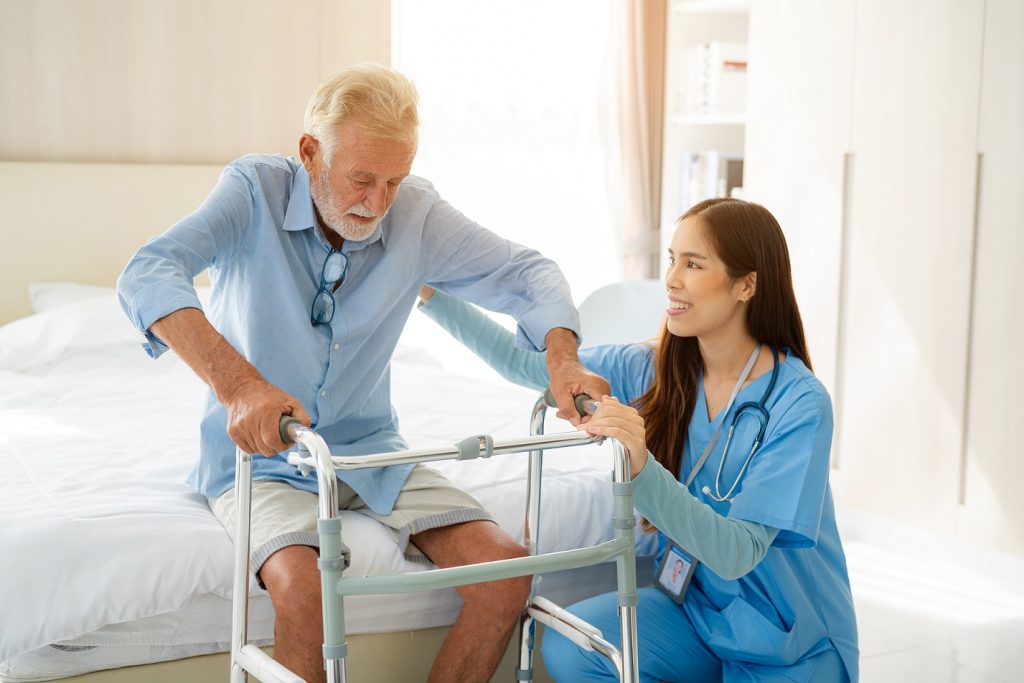
What are the dangers of falling?
A fall that may have been inconsequential when we were younger can have more serious consequences for seniors, affecting both physical and emotional wellbeing. Some dangers of falling include:
- Fractures and injuries: Falls can lead to fractures, particularly in bones like the hips, wrists, and ankles, which can be painful and require extensive recovery periods.
- Loss of independence: A serious fall can lead to a loss of independence as we can become fearful of falling again and therefore limit our activities. For example, a fall down stairs in the home may lead someone to begin to avoid that section of the house, or require the support of a carer to leave the house.
- Long-term health complications: The physical and emotional effects of falling can lead to long-term health complications, impacting the overall quality of life.
What can we do in the home to help prevent falls
Implementing falls prevention strategies at home can significantly reduce the risk of falls for seniors. Here are some practical steps to create a safe living environment.
How to prevent falls
Changes around the home
- Remove clutter: Ensure that living spaces are free of clutter and well organised to minimise the risk of tripping.
- Adequate lighting: Install bright lighting in hallways, staircases, and frequently used areas to improve visibility.
- Secure handrails: Install handrails on both sides of staircases, and in bathrooms, to provide support and stability.
- Non-slip flooring: Use non-slip rugs and mats, especially in areas prone to moisture, to prevent slipping accidents. Be sure to check they are securely attached.
- Install a seat in the shower to make self-care easier and safer.
- Organise belongings: Keep frequently used items within easy reach to avoid unnecessary reaching and potential loss of balance.
Lifestyle changes
- Keep physically active: aim to do at least 30 minutes of gentle activity, five days a week. This will keep you stronger and help improve your balance.
- Eat well: A wide variety of healthy foods and drink can help keep you strong, especially in hot weather. If you are underweight you might like to consider supplements.
- Stand up slowly: Taking it easy when you’re getting up from sitting or lying down can help prevent dizziness or losing your balance.
Download and print a PDF version of this list to keep on the fridge or somewhere handy for reference.
How TriCare helps to prevent falls
At TriCare, we’re committed to providing a safe and caring environment in all of our Aged Care Residences. Our holistic approach includes:
- Individualised falls risk assessment: TriCare conducts thorough assessments of each resident’s risk factors, including medical history, mobility and strength, to tailor appropriate support that meets your unique needs.
- Exercise and physical therapy: all of our Aged Care Residences offer a range of regular physical activity through supervised exercise programs, which can help improve strength, balance, and flexibility. Examples include chair yoga, walking groups, and gentle exercise classes.
- Residence design: our facilities are specifically designed with seniors’ safety in mind, with proper lighting, sensor mats, handrails, and non-slip flooring.
- Staff training: All of our staff are trained in falls prevention strategies, and are vigilant in identifying potential hazards and assisting our residents to move around safely.
Preventing falls is an important aspect of good quality care as we age. By understanding the reasons behind falls, identifying risk factors, and implementing practical preventive measures, we can create a safer environment and help the seniors in our lives to maintain their independence and overall health.
TriCare is committed to the safety and wellbeing of our residents, but falls prevention can and should start at home. By following the simple steps outlined in this article, we can all contribute to making our living spaces safer for ourselves and our loved ones. Together, we can reduce the risk of falls and ensure that seniors can enjoy a fulfilling and safe life.

